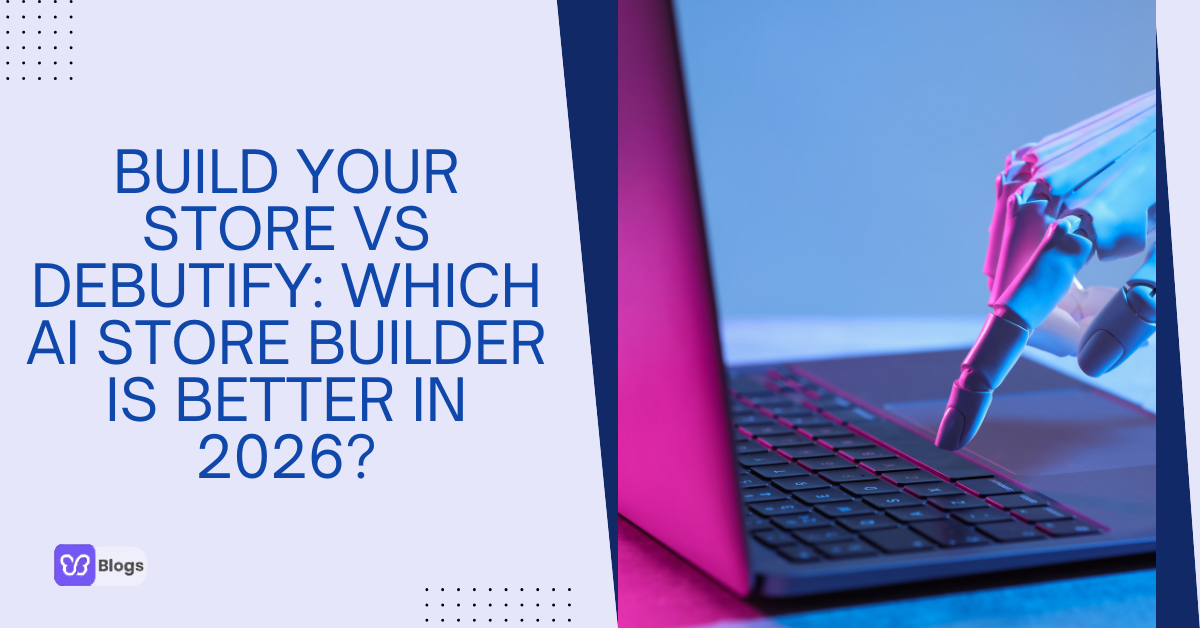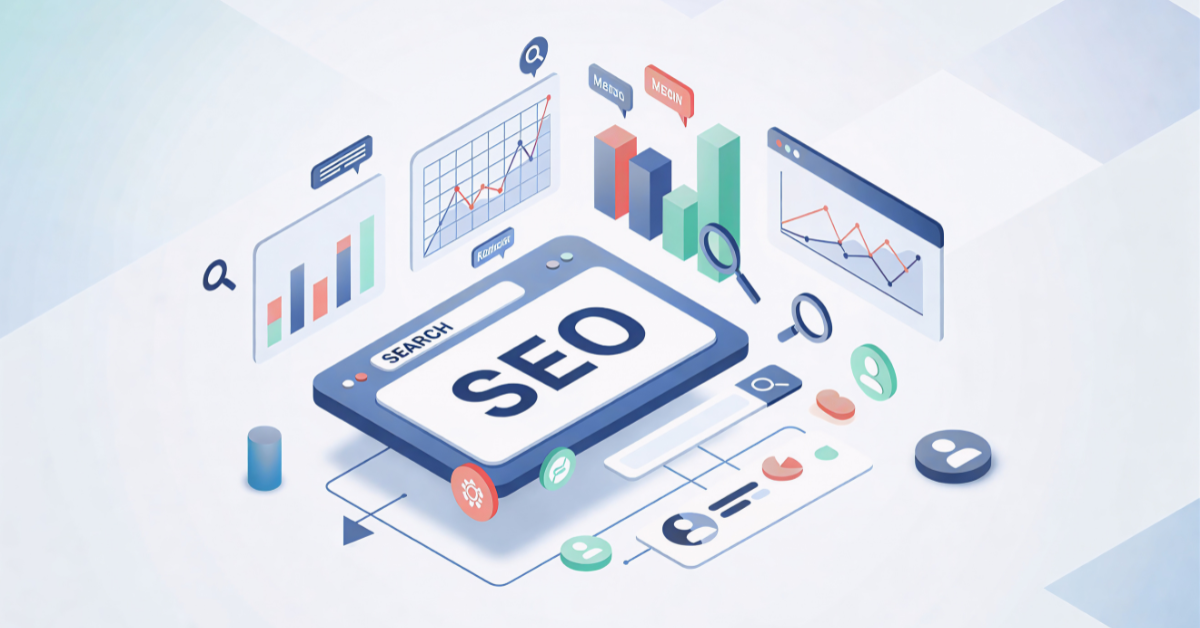Thanks to numerous off-the-shelf ecommerce platforms, starting and running an online business has become a breeze these days.
All you need to do is choose the right platform and invest in a theme, and you're all set to welcome customers to your newly established, loaded e-store.
But why do startups and newcomers struggle to achieve their conversion goals if everything is so simple and straightforward?
That's because over 7.9 million retailers worldwide are implementing more or less the same strategies as yours to boost online store conversions.
Even if you have launched an ecommerce store, that doesn't necessarily mean you're following all the right tactics to engage with your target audience.
Remember, setting up an online store and successfully running it are two entirely different things.
Common ecommerce mistakes can cost your online business a lot in terms of reputation and revenues.
But, it's not all bad news.
Fortunately, there are many ways to improve your online store and avoid common Shopify mistakes.
So, make sure you read this article if you want to grow as a seller and boost online conversions for your ecommerce store.
1. Not Calculating The Math
The most common ecommerce mistake many new and established sellers make is they do not consider the costs that come with the process.
There are shipping costs, inventory costs, marketing costs, and even the costs you have to bear to acquire and retain customers. So failing to do the basic math is something that can cost online businesses a lot.
What many new sellers do is throw cash on finding the most trending product, rush it off to introduce it in their stores, and spend tons of money promoting it without taking the time to calculate whether it is worth it.
The thing is, whether you're introducing a new product or planning to add something to your existing product range, you cannot boost online store conversions without performing basic math.
Try to set conversion KPIs in the beginning so you can measure them against the results from time to time to improve your online store.
2. Choosing The Wrong Ecommerce Platform
The ecommerce platform you're choosing for your business can make or break a deal for you.
Sure, there are many ecommerce platforms available these days, including Shopify, BigCommerce, WooCommerce, and more. But they're all designed to serve distinct purposes.
For instance, if you're a beginner and want to launch your business without professional assistance, Shopify can be your safest bid. Shopify is not only easy to use but also offers a plethora of sales features to boost online conversions. The only downside is Shopify is a little expensive when you compare it with other alternatives.
Similarly, BigCommerce is an ideal choice for sellers who want to create a feature-rich ecommerce store. BigCommerce offers many website/sales features. Also, setting up a store on BigCommerce isn't as expensive as it is on Shopify. However, you need to hire a BigCommerce expert to help you launch your e-business.
If you're on a tight budget, you can consider investing in WooCommerce as it offers great value for money. Again, you need to hire a web developer to help you create a WooCommerce store. Also, this platform comes with limited sales and website features.
So you see, not all ecommerce platforms are created alike. Remember, the right platform enables you to showcase your products in the best possible manner.
3. Failing To Understand The Needs And Wants Of Your Target Audience
Another common yet often neglected ecommerce mistake many sellers make is they do not take the needed time to know their target market and customers.
Yes, having a solid business plan and a winning product is essential to be successful with ecommerce, but not clearly defining who your target audience is can cost your business a lot in the long run.
Here, the key is to conduct thorough market research to see if there is enough demand for the products you're about to sell in the market.
Also, whether you're working in a B2B or B2C space, it is critical to learn your customers pain points. Figure out where your ideal customers spend most of their time online and communicate what specific problems your products solve for them.
With this information, you'd be better able to position your offerings in front of the right people.
4. Poor Marketing Strategy
A comprehensive marketing strategy forms the basis for a successful ecommerce store. Even if you're trying to get traffic from organic sources initially, you may have to switch to a broader marketing spread sooner or later.
What marketing channels you should target for your business depends upon your target audience and conversion goals. For example, if your goal is to acquire more customers, you'll have to invest in paid marketing as it allows you to quickly get your message across to potential buyers.
On the other hand, if you want to retain your existing customers and increase your AOV, you can implement cross-selling and upselling marketing strategies or discount or giveaway tactics to get the most out of your current customers.
Don't forget to keep your customer's wants and desires in mind before creating an ecommerce marketing strategy for your business.
Talk to your customers, conduct surveys, and do in-depth market research to see which marketing strategies can bring more value to the table.
5. Complex Navigation And Poor UX Design
Your business website is the heart and soul of your ecommerce business. Therefore, it should be a perfect blend of functionality and design.
Your website should have the potential to not only attract prospects but also turn them into long-term paying customers.
One of the common ecommerce mistakes online sellers make is they settle for a poor UX design to save some cash.
Smooth website navigation guarantees that your customer will spend more time on your website. Closely work with your website designer to create a mobile-responsive website that does not contain any confusing terms and offers an enjoyable user experience to your customers.
Begin with a homepage. Choose a simple and attractive homepage design with the least number of tabs possible. Create separate landing pages for each product category so that visitors can simply check out dedicated pages when they need anything specific.
Fast and responsive website design is also essential. Your website should offer the same experience to both your web and mobile users.
6. Doing Everything Yourself
While it may be tempting to do everything yourself for your ecommerce store, it is a better idea to have experts on board who're good at what they do.
The competition in an ecommerce space is already aggressive, and if you want to outperform your competitors, you cannot compromise on anything, be it content, paid marketing, or more.
That is where outsourcing steps in. There are many freelancing platforms from where you can hire the best people for your brand.
For instance, you can hire content strategists, social media marketers, website designers, and customer service agents to get your work done in the most accurate ways possible.
Remember, no matter how hard you try, you cannot do everything on your own. Establishing and running an online business is a challenging endeavor. Trying to handle every aspect of it may result in exhaustion and anxiety for the owners.
Hiring experts may cost your business more, but the results you get in the end will be worth the price.
7. Failing To Create A Foolproof Content Plan
No business can survive without creating a comprehensive content plan. If your business depends on organic traffic, you have to consistently produce SEO-optimized content to improve your site visibility and boost online store conversions.
In addition to that, paid marketing can only sustain if you prove your industry expertise and provide your customers with valuable content on an ongoing basis.
Many new sellers underestimate the power of quality content, not recognizing that each post they share with their audience increases their chances of getting more traffic and conversions.
Whether it's about your blog posts or product descriptions, make sure you generate high-quality and relevant content that resonates with your target audience and improves your online store conversions.
8. Complicated Checkout Process
If you have left a website because of its complicated checkout process, then you're not alone.
Customers usually do not like spending lots of time on checkout pages, especially when they have already selected a product and all they're left to do is a payment.
Do not make the mistake of adding too many steps/forms on your checkout pages, as doing so may annoy your customers and even result in an abandoned cart.
Most big brands have a guest checkout option available on their sites, and you can also do the same to boost your online conversions.
Also, do not limit yourself to limited payment and delivery options. Modern customers admire choices. They prefer to stick to the brands that go the extra mile to make their shopping experience more memorable and worthwhile.
9. Not Optimizing Your Site For SEO
You have the best business plan and an amazing product to sell. But what if your target customers don't get to see your offers in search results?
Pretty disappointing, right?
That's what happens when you don't care about your site's SEO.
SEO optimization is critical for every ecommerce business. It helps you get noticed by your target audience and drive organic traffic to your site.
SEO tactics today's marketers use are quite different from what they used to be a decade ago.
It's not about keyword research only. In fact, modern SEO is a combination of several on-page, off-page, and technical strategies that help ecommerce owners better target their customers on search engines.
That goes without saying that brands that do not pay heed to this factor struggle to engage with their customers in real time and fail to drive the desired traffic to their websites. For more on this, you can check out our Ecommerce SEO Guide for Beginners.
10. Lack Of Testing
The digital world has significantly transformed in recent years. If your website is currently ranked on the first page of Google, there is no guarantee that it will stay there forever.
If you want to survive in today's competitive business world and boost online store conversions, you have to keep testing your ecommerce strategy from time to time to see if it aligns with your present goals.
Fortunately, there are many testing tools available online to split-test different elements of your strategy.
Make sure you invest your time and resources into keeping your strategies updated and in line with your marketing and selling goals.
Bonus Tip - Customer Service And Follow-Ups
Customers are the most important asset for any business (online or offline). So any flaw in your customer service strategy can cost your business a lot.
Gone are the days when it was easier for brands to maintain communication with their buyers through automated responses.
Modern customers already know they have hundreds of other options to turn to if they don't get the expected support from your brand.
So having flaws in your customer support strategy is definitely not an option for your business.
Setting up a live chat support system is a good idea as it enables you to stay connected with your customers all the time. Also, ensure you maintain a line of communication with your buyers through emails and monthly newsletters.
Follow-ups are also an integral part of your customer support strategy. Stay connected with your loyal customers, and they will come back for more.






